Life
Sign up for our newsletter
We summarize the week's scientific breakthroughs every Thursday.
-
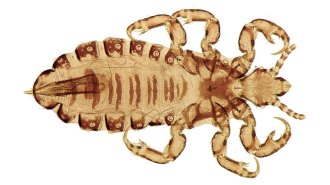 Life
LifeHead lice hitched a ride on humans to the Americas at least twice
The genes of head lice record the story of their human hosts’ global voyages.
By Jake Buehler -
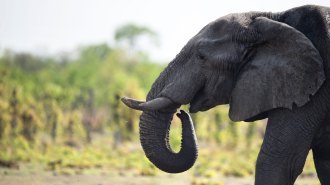 Animals
AnimalsThe mysterious deaths of dozens of Zimbabwe’s elephants has been solved
A bacterium never before identified in elephants or implicated in deadly internal hemorrhaging killed Zimbabwe elephants in 2020, genetic tests show.
-
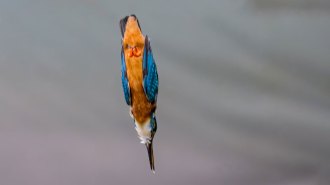 Animals
AnimalsHere’s how high-speed diving kingfishers may avoid concussions
Understanding the genetic adaptations that protect the birds’ brains when they dive for food might one day offer clues to protecting human brains.
-
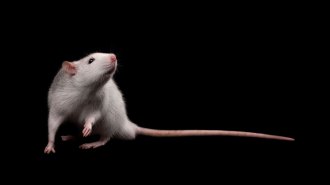 Neuroscience
NeuroscienceIn a Jedi-like feat, rats can move a digital object using just their brain
In a new study, rats could imagine their way through a 3-D virtual world, hinting at how brains can think about places that they’re not physically in.
-
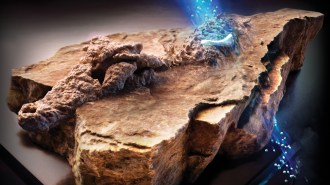 Physics
PhysicsHow neutron imaging uncovers hidden secrets of fossils and artifacts
The technique can complement X-ray scanning and other tools to uncover details of dinosaur fossils, mummies and more.
-
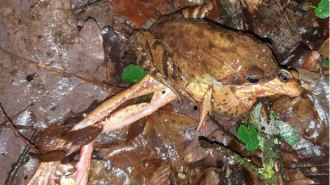 Life
LifeFaking death lets some female frogs slip the mating grip of a male
Suddenly looking dead, grunting like a guy or vigorously rotating can help female frogs survive mating balls in species with aggressively grabby males.
By Susan Milius -
 Plants
PlantsOn some Australian islands, sea level rise may be helping mangroves thrive
Rising seas usually spell trouble for mangroves. But the first survey of the Howick Islands in 50 years finds that mangroves there have expanded a lot.
-
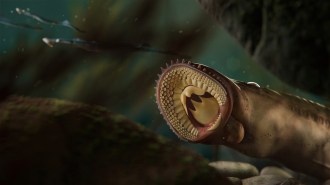 Paleontology
PaleontologyNewfound fossil species of lamprey were flesh eaters
In China, paleontologists have unearthed fossils of two surprisingly large lamprey species from the Jurassic Period.
-
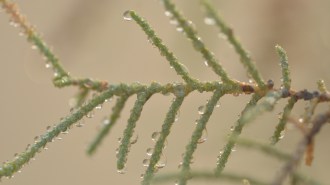 Plants
PlantsSalty sweat helps one desert plant stay hydrated
The Athel tamarisk excretes excess salt through its leaves. The buildup of salt crystals pulls water directly from the air, a study reports.
-
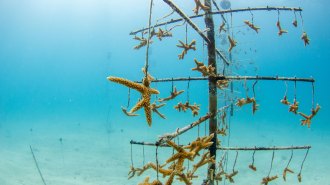 Animals
AnimalsFake fog, ‘re-skinning’ and ‘sea-weeding’ could help coral reefs survive
Coral reefs are in global peril, but scientists around the world are working hard to find ways to help them survive the Anthropocene.
-
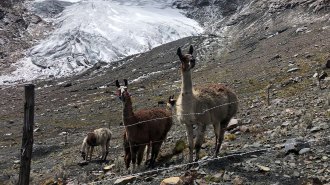 Animals
AnimalsAt the foot of a melting glacier in Peru, llamas helped revitalize the land
A partnership between scientists and farmers suggests how llama herding can mitigate some of the impacts of climate change.
-
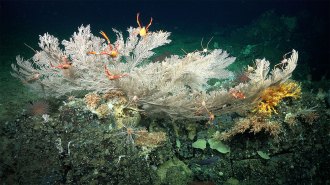 Life
LifeSee the wonders of two newfound deep-sea coral reefs off the Galápagos
Coral reefs around the world are in trouble. But these reefs in the Galápagos Island Marine Reserve have yet to be damaged by humans.